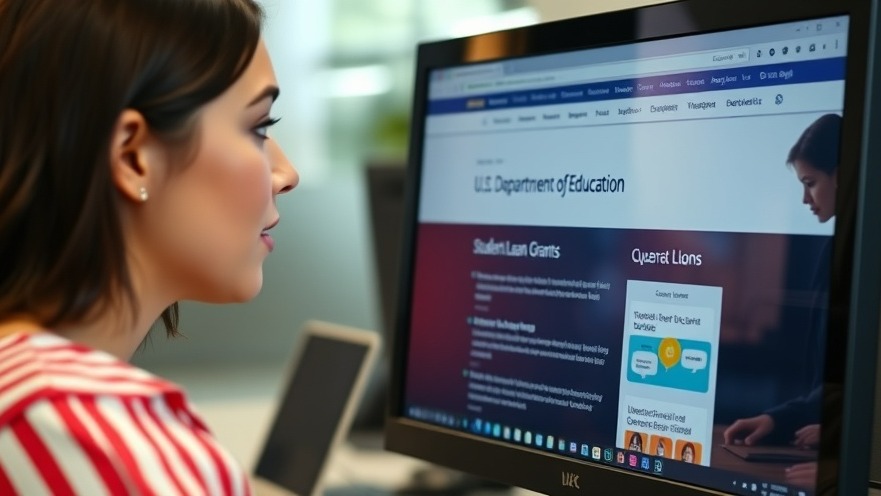
The Financial Landscape for Student Loan Borrowers
As the government prepares to resume collections on defaulted student loans, a considerable wave of borrowers is bracing for impact. The Department of Education's announcement signals a shift back to stringent financial obligations, leaving millions of Americans feeling the strain. With many already grappling with high credit card debt and rising costs of living, the return of student loan payments adds another layer of complexity to personal finances. Understanding how to protect one's credit score can make all the difference during this challenging transition.
1. Explore Income-Driven Repayment Plans
For those confronting tight budgets, transitioning to an income-driven repayment plan may provide some relief. Lauren Bringle, a financial expert, recommends this approach for federal loans, where payments adjust based on income. If your financial landscape feels precarious, you may even be eligible for payments as low as $0/month. This financial strategy can free up funds, allowing you to manage other expenses effectively. Visit studentaid.gov to explore your options and take control of your repayment strategy.
2. Understand the Importance of Your Credit Score
Your credit score acts as a key to various aspects of life, including renting an apartment or obtaining a mortgage. Since payment history constitutes 35% of your FICO score, prioritizing timely payments becomes crucial. If you've missed previous payments, it's worth looking into creative ways to rebuild your credit. Start with small, manageable repayments, and consistently communicate with your loan servicer about your situation.
3. Seek Professional Guidance
No one said navigating student loan complexities was easy. Engaging with credit counseling organizations such as Operation Hope, NFCC, and AFCPE can provide invaluable insights. These groups offer a comprehensive review of your financial health, helping you devise tailored strategies to stabilize your finances. A professional can guide you through creating a sustainable budget while addressing your debts.
Emotional Impact and Long-Term Considerations
The emotional toll that student loan debt takes can be immense. Many borrowers report feelings of anxiety and uncertainty, especially as repayments resume after the extended pause during the pandemic. However, these challenges can also serve as a motivator for refining financial acumen. By seeing your credit profile as a vital “living document,” you can become proactive in shaping your financial future positively.
Counterarguments: A Different Perspective
While some advocate for a focus on short-term financial relief through deferred payments, others point to the long-term importance of cultivating good credit. The argument stands that consistent payments—even at reduced amounts—can lay a healthier financial foundation over time. Finding the right balance between immediate care and future planning can be a debated but crucial consideration among borrowers.
Future Trends and Insights for Borrowers
The ongoing discussions around student loan forgiveness and future policy changes in education financing highlight the unpredictable nature of student debt. As various advocacy groups push for reform, staying informed about these developments can empower borrowers. Monitoring when and how policies change can provide essential context for managing debts.
Just remember, the narrative of student loan debt does not have to end in despair. Small, meaningful steps can enhance your credit score, alleviate stress, and facilitate better financial outcomes. Take proactive control of your financial trajectory and prepare for a brighter future.
Have you found success in adapting your financial strategies? Join the conversation by sharing your experiences and tips!
 Add Row
Add Row  Add
Add 




Write A Comment